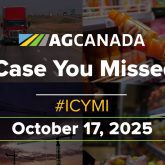The Canadian Wheat Board is under fire for the way it conducted a series of seven producer meetings.
Some farmers attending the events said the CWB didn’t allow both sides of the debate to have their say.
“The meeting in Regina was really self-promotional propaganda featuring just one side,” said Franck Groeneweg, a grower from Edgeley, Sask., who is also a director of the Saskatchewan Canola Development Commission.
Bill Cooper, a retired farmer from Foam Lake, Sask., a founding member of North East Terminal and former executive director of the Saskatchewan Canola Growers Association, echoed that sentiment.
Read Also

Feds propose overhaul of chronic wasting disease control program
Chronic Wasting disease control program getting updated by Canadian Food Inspection Agency with feedback encouraged from producers.
“They just had the board members there that supported the retention of the monopoly and no other speakers,” he said. “They just talked about how great the board was.”
CWB chair Allen Oberg said the meetings were purposely lopsided.
“The idea was not to have a debate or a balanced presentation. The idea was to inform farmers about the implications of losing the single desk. It wasn’t to present the government view.”
Groeneweg said the CWB is violating a directive issued by federal cabinet in 2006 ordering the CWB to stop spending directly or indirectly on advocating the retention of its monopoly powers, a directive referred to by board supporters as a gag order.
“From what I saw at the meeting in Regina, you couldn’t be any further from not respecting that gag order.”
Cooper said the spirit of the directive was also violated in the Saskatoon meeting, but that doesn’t bother him.
“I don’t put much stake in that. Let them get out there and say what they like, but let’s speak the truth,” he said.
Cooper said directors used fear mongering tactics, like telling farmers that producer cars wouldn’t exist if the CWB lost its monopoly.
He said that is a ridiculous statement given that producer car legislation resides under the Canada Grain Act and is administered by the Canadian Grain Commission, not the CWB.
“They put out all these red herrings that producer cars wouldn’t survive and (the Port of) Churchill would no longer exist. Churchill will exist if there is a demand for their services in a commercial market,” he said.
Cooper also admonished the CWB for bashing grain companies by implying they would prey upon helpless farmers in a post-monopoly environment.
Oberg doesn’t feel he is violating the federal government’s gag order by extolling the benefits of the monopoly.
“I guess that’s a matter of opinion. If (agriculture) minister (Gerry) Ritz feels strongly about that, he certainly has the power to issue a complaint to us or act on that directive.”
He feels it is important to tell producers how the proposed changes will affect their operations.
Oberg objects to the allegation that the CWB was trying to mislead farmers with scary scenarios.
He said the grain commission may control producer car allocation, but the CWB keeps the rail cars on the tracks, and said that about 97 percent of producer cars haul board grains.
“With the wheat board gone, certainly there is going to be some implications for producer car shippers. I don’t think that’s fear mongering. That’s just being realistic.”
Oberg said it is also a reality that dominant grain companies will be in a stronger economic position if the single desk disappears.
In addition to the content of the meetings, Cooper and Greneweg also took issue with how they were conducted.
Cooper said no open microphones were present in Saskatoon. CWB staff members held roaming microphones and chose who got to ask questions and didn’t provide an opportunity for the questioner to respond to the answers.
“It was very controlled,” he said.
“It wasn’t informational at all. It wasn’t professional.”
Groeneweg said there wasn’t an adequate forum for those who took issue with information provided by the CWB directors.
He doubted the CWB’s claim that it has provided a premium worth hundreds of millions of dollars per year and billions of dollars to western Canadian farmers. But when he tried to provide his admittedly lengthy feedback, he was heckled by CWB supporters in the audience.
Oberg said the meetings were open to the public and the CWB had no cont rol over who showed up, although he estimates 80 percent of the 2,000 people who attended the meetings were board supporters.
“Certainly I don’t think there was any attempt to cut off questions or decide who could make a statement at the microphones and who couldn’t.”















